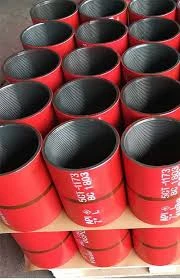- Afrikaans
- Albanian
- Amharic
- Arabic
- Armenian
- Azerbaijani
- Basque
- Belarusian
- Bengali
- Bosnian
- Bulgarian
- Catalan
- Cebuano
- Corsican
- Croatian
- Czech
- Danish
- Dutch
- English
- Esperanto
- Estonian
- Finnish
- French
- Frisian
- Galician
- Georgian
- German
- Greek
- Gujarati
- Haitian Creole
- hausa
- hawaiian
- Hebrew
- Hindi
- Miao
- Hungarian
- Icelandic
- igbo
- Indonesian
- irish
- Italian
- Japanese
- Javanese
- Kannada
- kazakh
- Khmer
- Rwandese
- Korean
- Kurdish
- Kyrgyz
- Lao
- Latin
- Latvian
- Lithuanian
- Luxembourgish
- Macedonian
- Malgashi
- Malay
- Malayalam
- Maltese
- Maori
- Marathi
- Mongolian
- Myanmar
- Nepali
- Norwegian
- Norwegian
- Occitan
- Pashto
- Persian
- Polish
- Portuguese
- Punjabi
- Romanian
- Russian
- Samoan
- Scottish Gaelic
- Serbian
- Sesotho
- Shona
- Sindhi
- Sinhala
- Slovak
- Slovenian
- Somali
- Spanish
- Sundanese
- Swahili
- Swedish
- Tagalog
- Tajik
- Tamil
- Tatar
- Telugu
- Thai
- Turkish
- Turkmen
- Ukrainian
- Urdu
- Uighur
- Uzbek
- Vietnamese
- Welsh
- Bantu
- Yiddish
- Yoruba
- Zulu
Understanding Bull Plugs and Their Applications in Various Industries
Understanding Bull Plugs Definition, Uses, and Considerations
In the vast world of tools and equipment, the term bull plug refers to a specific type of fitting used primarily in piping and plumbing systems. It is essential in various industries, including construction, manufacturing, and oil and gas. In this article, we will explore what a bull plug is, its uses, advantages, and factors to consider when selecting one.
What is a Bull Plug?
A bull plug is a type of pipe fitting that serves as a cap to close off the end of a pipe. It is typically designed to fit tightly into the pipe's opening, providing a seal that prevents the flow of liquids or gases. Bull plugs are often made from robust materials such as steel, brass, or plastic, depending on their application and the environment in which they will be used. This versatility allows bull plugs to function in various circumstances, ranging from high-pressure systems to standard plumbing applications.
Uses of Bull Plugs
Bull plugs are used in numerous applications. Here are some of the most common
1. Closing Off Pipelines In construction and infrastructure projects, bull plugs are frequently used to close off the ends of pipes that are not currently in use. This prevents contamination and protects against potential leaks.
2. Testing Pressure When testing the integrity of piping systems, bull plugs can be used to seal off sections of the pipeline. This allows engineers to check for leaks and ensure that the system is functioning correctly before it goes into operation.
3. Maintenance and Repair During maintenance, bull plugs can temporarily block off sections of piping to facilitate safe repairs without draining the entire system. This is especially useful in large industrial setups where downtime can be costly.
4. Hydraulic Systems In hydraulic systems, bull plugs are used to close off ports and prevent the loss of hydraulic fluid. This is crucial for maintaining system pressure and ensuring efficient operation.
Advantages of Using Bull Plugs
The use of bull plugs offers several advantages
- Versatility Bull plugs come in various sizes and materials, making them suitable for a wide range of applications.
what is bull plug

- Cost-Effective They are generally inexpensive and can save companies money by allowing for quick and easy sealing of pipes.
- Ease of Use Installing a bull plug is straightforward, which can save time on projects and simplify maintenance procedures
.- Durability Built to withstand pressure and various environmental conditions, bull plugs are long-lasting and reliable.
Considerations When Choosing a Bull Plug
When selecting a bull plug for a specific application, several factors should be taken into account
1. Material Selecting the appropriate material is vital. For high-pressure applications, metal options like brass or steel may be necessary, while plastic ones might suffice for lower pressure and corrosive substances.
2. Size It is crucial to choose a bull plug that matches the pipe diameter accurately to ensure a proper seal.
3. Pressure Rating Check the pressure rating of the bull plug to ensure it is adequate for the application. Using a plug that cannot withstand the system's pressure can lead to catastrophic failures.
4. Temperature Tolerance Certain applications may involve extreme temperatures. Ensure that the chosen bull plug can handle the required temperature range.
5. Thread Type If the bull plug uses threads for attachment, ensure compatibility with the pipe's threading to achieve a secure fit.
Conclusion
In summary, bull plugs are essential components in piping systems, offering versatility and reliability for various applications, from construction to hydraulic systems. Their ease of use and cost-effectiveness make them a popular choice for sealing off pipe ends. However, careful consideration of material, size, pressure rating, temperature tolerance, and thread type is crucial when selecting the right bull plug for an application. By understanding the characteristics and uses of bull plugs, engineers and technicians can ensure that their systems operate efficiently and safely.
-
Tubing Pup Joints: Essential Components for Oil and Gas OperationsNewsJul.10,2025
-
Pup Joints: Essential Components for Reliable Drilling OperationsNewsJul.10,2025
-
Pipe Couplings: Connecting Your World EfficientlyNewsJul.10,2025
-
Mastering Oilfield Operations with Quality Tubing and CasingNewsJul.10,2025
-
High-Quality Casing Couplings for Every NeedNewsJul.10,2025
-
Boost Your Drilling Efficiency with Premium Crossover Tools & Seating NipplesNewsJul.10,2025







